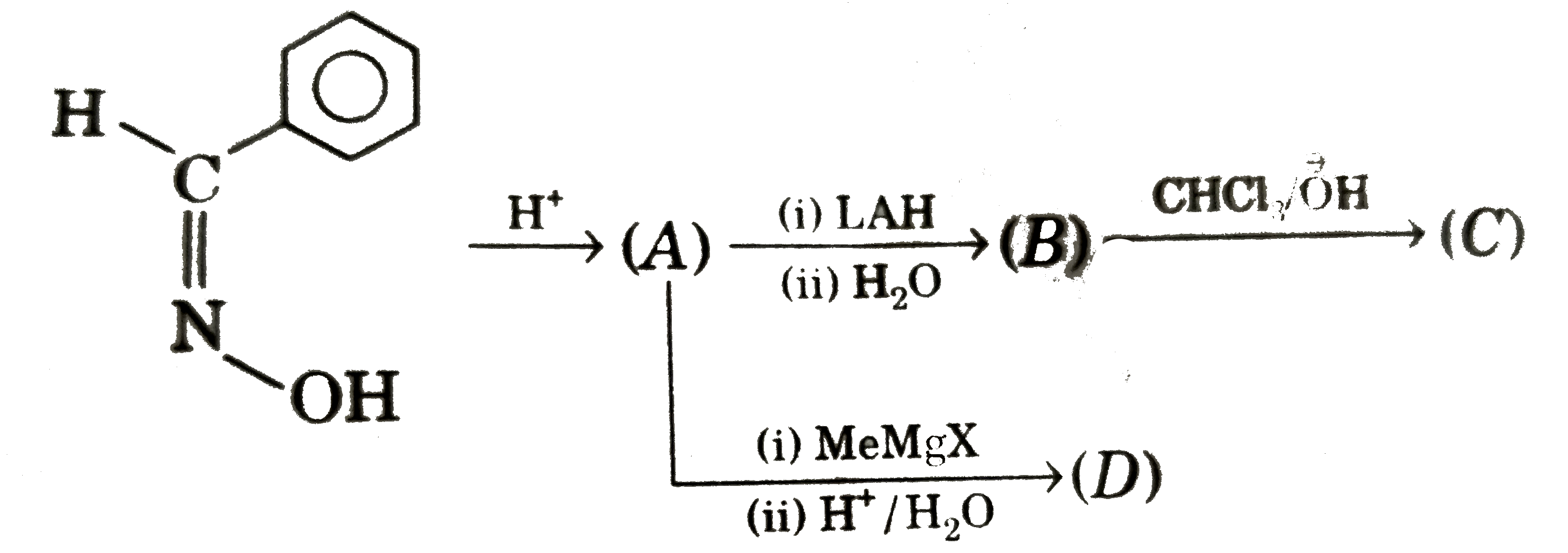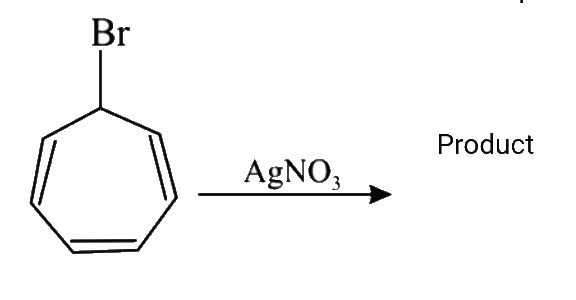Which is incorrect statement about lithium and magnesium?
Lithium and magnesium do not form superoxide
LiCl and MgCl, are soluble in ethanol
Li and Mg salts do not respond to flame test
Carbonates of Li and Mg decompose easily on heating
The correct Answer is:C
To determine which statement about lithium and magnesium is incorrect, we will analyze the properties and behaviors of both elements.
Step 1: Understand the Diagonal Relationship
Lithium (Li) and Magnesium (Mg) are said to have a diagonal relationship in the periodic table. This means that they exhibit similar properties due to their positions in the periodic table.
Hint: Diagonal relationships occur between elements in the second and third periods of the periodic table, where elements exhibit similar chemical properties.
Step 2: Analyze the Properties of Lithium and Magnesium
1. Formation of Superoxide:
- Lithium and magnesium do not form superoxides. Superoxides are typically formed by alkali metals like potassium (K).
- Conclusion: This statement is correct.
2. Solubility of Chlorides:
- Lithium chloride (LiCl) and magnesium chloride (MgCl₂) are both soluble in water.
- Conclusion: This statement is correct.
3. Response to Flame Test:
- When lithium salts are heated, they produce a red-pink flame, and magnesium salts also respond to flame tests but with a different color.
- The statement that "Lithium and Magnesium salts do not respond to flame test" is incorrect because both do respond to flame tests.
- Conclusion: This statement is incorrect.
Step 3: Identify the Incorrect Statement
Based on the analysis:
- The first statement about forming superoxide is correct.
- The second statement about solubility is correct.
- The third statement about not responding to flame tests is incorrect.
Thus, the incorrect statement regarding lithium and magnesium is that "Lithium and Magnesium salts do not respond to flame test."
Final Answer: The incorrect statement is that "Lithium and Magnesium salts do not respond to flame test."
Lithium (Li) and Magnesium (Mg) are said to have a diagonal relationship in the periodic table. This means that they exhibit similar properties due to their positions in the periodic table.
1. Formation of Superoxide:
- Lithium and magnesium do not form superoxides. Superoxides are typically formed by alkali metals like potassium (K).
- Conclusion: This statement is correct.
- Lithium chloride (LiCl) and magnesium chloride (MgCl₂) are both soluble in water.
- Conclusion: This statement is correct.
- When lithium salts are heated, they produce a red-pink flame, and magnesium salts also respond to flame tests but with a different color.
- The statement that "Lithium and Magnesium salts do not respond to flame test" is incorrect because both do respond to flame tests.
- Conclusion: This statement is incorrect.
Based on the analysis:
- The first statement about forming superoxide is correct.
- The second statement about solubility is correct.
- The third statement about not responding to flame tests is incorrect.
Topper's Solved these Questions
Similar Questions
Knowledge Check
Make the incorrect statement about lithium
ALithium metal is not affected by airBWhen burnt in oxygen, lithium metal form superoxide, LiO2CLithium combines with nitrogen directly to form lithium nitrideDLithium has great tendency to form hydrates.Which is incorrect statement about silicones ?
AThey are made up of SiO4−4 unitsBThey are polymers made up of R2SiO unitsCThey are water soluble compoundsDThey are hydrophilic in natureWhich is the incorrect statement about polysaccharides?
ACellulose is found exclusively in plantsBCellulose is a straight chain polysaccharide, composed only of β−D− glucose units.CStarch is polymer of β - D - glucose units.DAmylase is the water insoluble component of starch
Which of the following is an incorrect statement about excretion?
View SolutionPoint out the correct statement about lithium ?
View SolutionWhich of the following statement is NOT true about lithium and magnesium ?
View SolutionPoint out the incorrect statement about lithium in the following
View Solution
Which statement is incorrect about D?
View Solution

